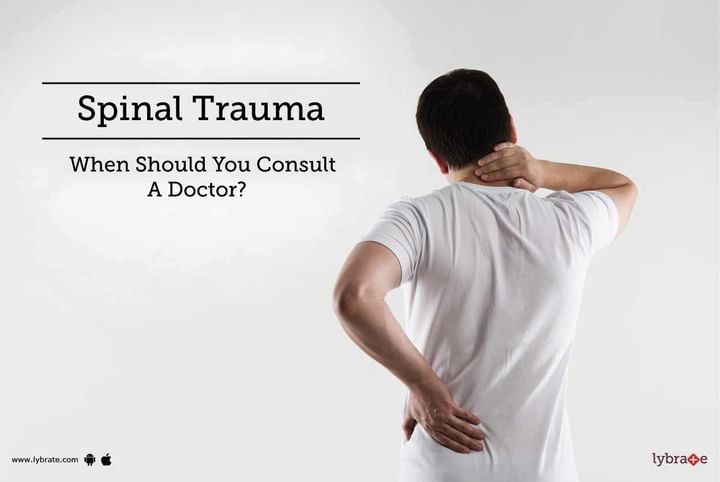Spinal Trauma - When Should You Consult A Doctor?
Spinal trauma, also referred to as spinal cord injury, occurs when a section of your spinal cord or the nerves at the edge of your spinal canal is damaged. The spinal cord acts as a messenger between the brain and other parts of your body. If the spine sustains an injury, all or some of these impulses may not get through. This may result in complete loss of mobility and sensation below the site of injury. An injury closer to the neck can cause paralysis throughout a larger part of the body than in the lower back region.
How do such injuries occur?
Often, spinal trauma or injury results from a violent event or an unpredictable accident. The following may severely damage your spinal cord-
• A violent attack (a gunshot or a stabbing)
• A motor vehicle accident that may cause trauma to the neck, back or head
• Falling from a great height
• Spinal or head injuries during some sports activity
• Electrical accidents
What are the signs of a spinal cord injury?
The followings signs and symptoms can be observed after an injury to the spinal cord-
• Difficulty walking
• Restricted movement of the legs and arms
• Stiffness, pressure and intense pain in the neck/back
• Loss of sensation
• Muscle spasms
• Loss of bowel or bladder control
• A twisted neck or back
• Lack of coordination, weakness or paralysis in any of the body part
When should you see a doctor?
If you experience significant trauma to the neck or head, accompanied by the above symptoms, then visit a doctor immediately. Spinal trauma or injuries is a debilitating condition and can deteriorate further if you do not seek medical intervention. In fact, if such an injury is not detected on time, you may have to face more severe complications. For instance, paralysis or numbness may develop immediately or gradually as blood clots and swelling occur in the surrounding region of the spine.
The doctor can detect spinal injuries using any of the following methods-
What is the treatment for spinal trauma?
An orthopaedic will recommend the correct treatment for spinal trauma or spinal cord injuries, depending on the severity of the condition.
• Medications - Intravenous medications can help reduce the pain and symptoms of acute spinal cord injury
• Immobilization - Braces, corsets, or neck collar can help realign and stabilize the spine
• Surgery - Surgery may be performed to remove bone fragments, herniated disks, foreign objects, or fractured vertebrae that are compressing the spine. Surgery also prevents deformity and pain in the long run.
Recovery starts typically within a week after the treatment. If you undergo surgery, you will have to wait a little longer to get back to your day-to-day activities. It is advisable that you follow up with your doctor and carry on physiotherapy for the first six months at least.



+1.svg)
